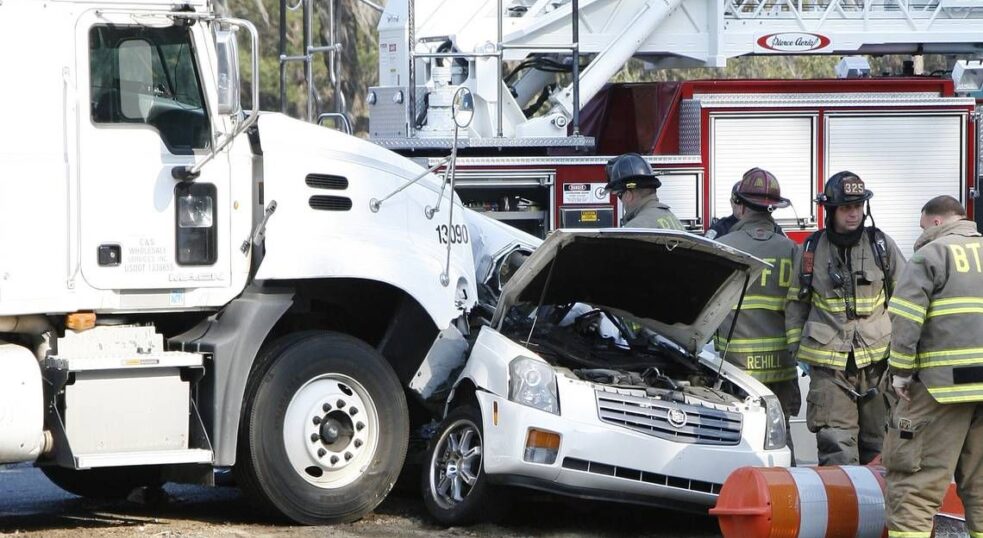What We Do...
Protecting Your Rights and Seeking Justice
Legal Representation
Negotiation and Settlement
Legal Guidance and Support
Liability Assessment
Navigating Legal Terrain: The Essential Guide to Car and Truck Lawyers
In today's bustling world of transportation, accidents are an unfortunate reality. Whether it's a minor fender-bender or a catastrophic collision involving commercial trucks, navigating the legal aftermath can be daunting. This is where car and truck lawyers come into play. These legal professionals specialize in handling cases related to vehicular accidents, offering invaluable support and guidance to individuals seeking justice and compensation. In this comprehensive guide, we'll explore the vital role of car and truck lawyers and provide essential insights into how to navigate the legal terrain following an accident.
Understanding Car and Truck Lawyers
Car and truck lawyers, also known as personal injury attorneys or accident lawyers, specialize in representing individuals who have been injured in motor vehicle accidents. Their expertise encompasses various aspects of accident law, including negligence, liability, insurance claims, and litigation. While some lawyers focus solely on car accidents involving passenger vehicles, others specialize in cases involving commercial trucks, such as tractor-trailers, semi-trucks, and delivery vehicles.
The Importance of Legal Representation
After being involved in a car or truck accident, many individuals may underestimate the importance of seeking legal representation. However, enlisting the services of a skilled attorney can significantly impact the outcome of a case. Car and truck lawyers bring extensive legal knowledge and experience to the table, allowing them to navigate complex legal procedures and advocate effectively on behalf of their clients. From conducting investigations and gathering evidence to negotiating settlements and representing clients in court, these professionals play a pivotal role in securing fair compensation for accident victims.
Services Offered by Car and Truck Lawyers
Car and truck lawyers offer a wide range of services tailored to meet the unique needs of each client. Some of the key services they provide include:
1. Legal Consultation: Car and truck lawyers offer initial consultations to assess the details of the case and provide expert legal advice. During this consultation, they will evaluate the merits of the claim and outline the available legal options.
2. Investigation and Evidence Collection: Car and truck lawyers conduct thorough investigations into the circumstances surrounding the accident. This may involve gathering witness statements, obtaining police reports, and collecting other relevant evidence, such as photographs and medical records.
3. Insurance Claims: Dealing with insurance companies can be challenging, especially when seeking fair compensation for injuries and property damage. Car and truck lawyers handle all communication with insurance providers and work to ensure that their clients receive the maximum compensation entitled to them under the law.
4. Negotiation and Settlement: In many cases, car and truck accident claims are resolved through negotiation rather than litigation. Car and truck lawyers use their negotiation skills to reach favorable settlements on behalf of their clients, taking into account factors such as medical expenses, lost wages, and pain and suffering.
5. Litigation: In cases where a settlement cannot be reached, car and truck lawyers are prepared to take the matter to court. They represent their clients during trial proceedings, presenting compelling arguments and advocating vigorously for their rights.

Choosing the Right Lawyer
Selecting the right car or truck lawyer is a critical decision that can significantly impact the outcome of a case. When choosing an attorney, consider the following factors:
1. Experience: Look for a lawyer who has extensive experience handling car and truck accident cases. An attorney with a proven track record of success is more likely to achieve a favorable outcome for your case.
2. Specialization: Choose a lawyer who specializes in car and truck accident law. Specialization ensures that the attorney has a deep understanding of the relevant legal principles and procedures.
3. Reputation: Research the lawyer's reputation within the legal community and among past clients. Reading reviews and testimonials can provide valuable insights into the attorney's professionalism and client satisfaction.
4. Communication: Effective communication is essential when working with a lawyer. Choose an attorney who is responsive to your inquiries and keeps you informed about the progress of your case.
5. Fee Structure: Discuss the lawyer's fee structure upfront to avoid any surprises later on. Many car and truck lawyers work on a contingency fee basis, meaning they only get paid if they win your case.
Conclusion
Car and truck accidents can have devastating consequences, both physically and financially. However, with the assistance of a skilled car or truck lawyer, accident victims can navigate the legal terrain with confidence and pursue the compensation they deserve. From providing expert legal advice to advocating tirelessly on behalf of their clients, these dedicated professionals play a crucial role in seeking justice and promoting safety on our roadways. If you've been involved in a car or truck accident, don't hesitate to seek legal representation and protect your rights.
Check out what clients say...

When I needed legal assistance after a car accident, I turned to this lawyer, and it was the best decision I made. Their team's professionalism and commitment to my case were outstanding.
Frances Wagner

Their dedication to their clients is unmatched. From the initial consultation to the courtroom representation, they were there, fighting for my rights and ensuring I received the compensation I deserved.
Maurice Smith

I was involved in a serious car accident, and the legal complexities seemed overwhelming. However, thanks to the expertise of the car and truck lawyer I hired, the entire process became manageable. They were professional, empathetic, and extremely knowledgeable.
Matilda Ellis
Contact Us
